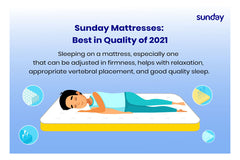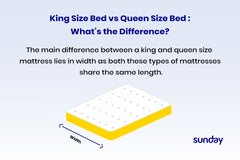 By Alphonse Reddy
By Alphonse Reddy 0 Comments
0 CommentsIt is often said for a balanced lifestyle we need to pay attention to healthy sleep and healthy eating habits as they are inter linked in more ways than one. A Sunday Sleep survey 2015 showed how eating at least two hours before bed time ensures we don’t sleep on a full stomach and have a restless night. There are in fact diet experts who’d go to the extent of saying the last meal should be had before darkness falls as digestion slows post dusk.
As far as alcohol goes, you might be tempted to have a tipple to help you rest better but that is a myth. While alcohol might induce sleep, you won’t get deep sleep and in the morning you will feel very tired. Most of the dreaming happens during a phase of sleep called REM (rapid eye movement) sleep and alcohol suppresses this sleep. When there is less REM you will experience restless sleep and night awakenings. A glass of wine with dinner won’t do any harm, but have it at least two hours before you sleep.
Also, it works both ways, if you are sleep deprived you will eat wrong and the bad diet will in turn make you fat and unhealthy and reduce the overall quality of life.
Then there are foods with essential nutrients that if incorporated into the diet help enable good quality sleep and improve melatonin content and in turn boost well being.
Some of the Foods good for Sleep include:
Fish: Fish—especially tuna, salmon, and halibut— are rich in vitamin B6, and for producing melatonin it is essential.
Bananas: Bananas, well-known for being rich in potassium, are also a good source of Vitamin B6, which is needed to make melatonin. Banana is also a natural muscle relaxant.
Cherries: Cherries contain melatonin and help sleep-wake cycle. It can be had in the form of juice.
Jasmine Rice: If had four hours before sleep time, it is supposed to to induce good sleep. The high glycemic property is supposed to make it better suited for sleep as compared to other rice. lt boosts the production of tryptophan and serotonin in the blood, thus encouraging sleep.
Yogurt: Dairy products like milk and yogurt are rich in calcium—and when there is calcium-deficient it may make it difficult to fall asleep.
Almonds: Almonds promote muscle and sleep as they are rich in magnesium. If the body’s magnesium levels are too low, it is harder to stay asleep. Plus, while sleeping almonds supply enough protein to help steady the blood sugar level. Just a handful a day should be enough.
Kale: Green leafy vegetables, such as kale and collards, are also known to boost calcium and aide sleep.
Chickpeas: Chickpeas boast vitamin B6, which is needed to make melatonin.
Cereal: It can be had in the morning and no harm having a small bowl last thing before bed either, especially if it's a low-sugar, whole-grain cereal. Not only is it a healthy snack (make sure you top it with milk to give your body the protein it needs), but can help sleep. It can increase tryptophan in the bloodstream, increasing the sleep-inducing effect.

Sleeping position in Islam Sleep science has been gradually building momentum over the past couple...

Mattresses are known to improve sleeping postures and circulation, which is essential for a healthy...

Everyone looks for comfort when it comes to sleeping and relaxing. And mattresses play a...

Choosing the correct type of mattress is the first step if you want a luxurious...

The world of mattress sizes can get your mind out of whack if not adequately...
Still confused? Call us on 080 4749 4649


Comments